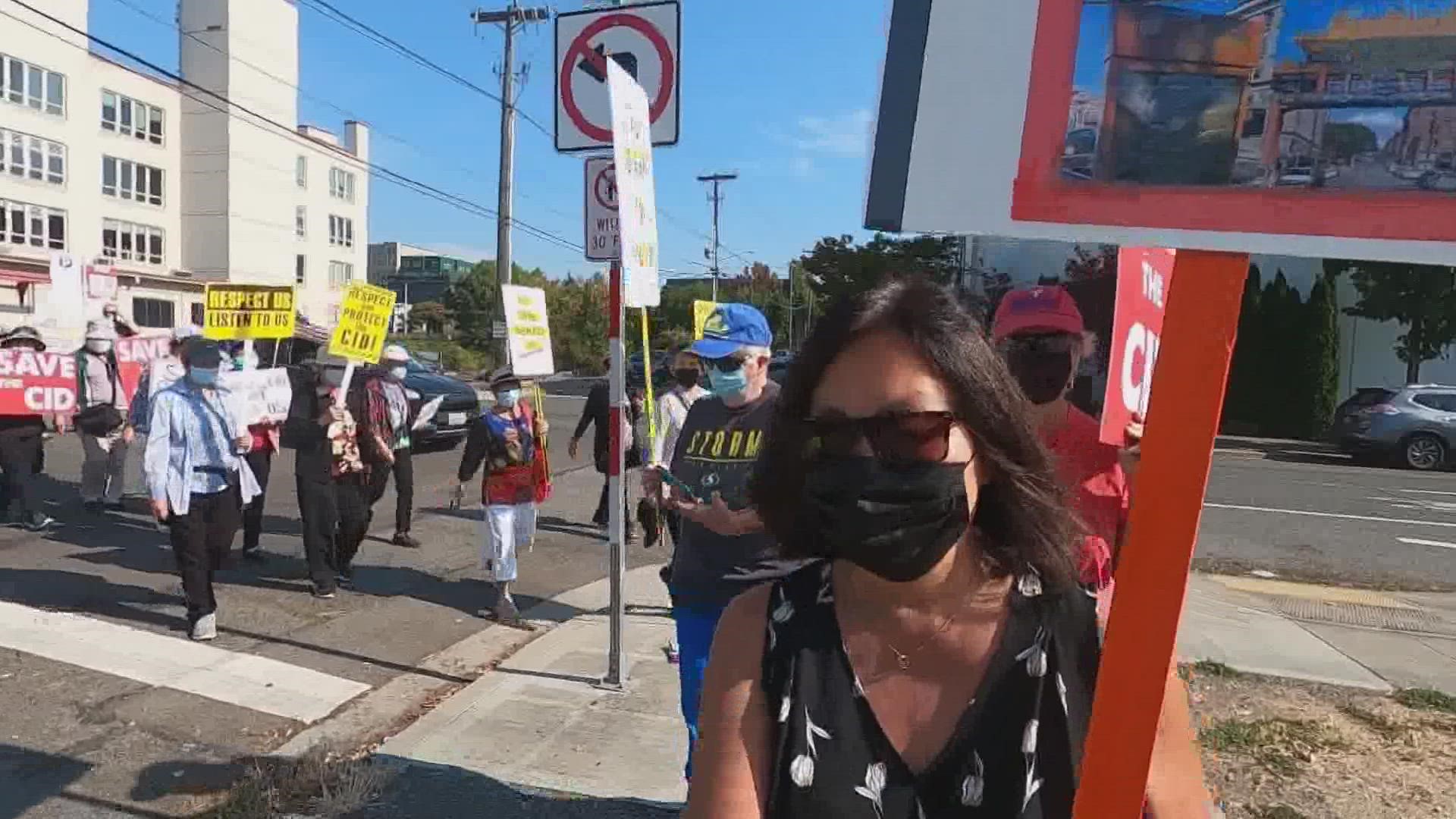SEATTLE — King County will not expand a homeless shelter in Seattle's SODO neighborhood after pushback from residents and business owners.
The proposed expansion near the Chinatown-International District would have added space for an additional 150 people at Salvation Army's Lighthouse Shelter which currently has 270 beds. If approved by the King County Council, money for the expansion will be used for other projects that provide access to shelter or housing.
"People living and working in the community have shared unease about what they see in the neighborhood today – poor public safety conditions in the CID, and the feeling of doing more than other neighborhoods to provide human services," King County Executive Dow Constantine said in a statement. "These are reasonable concerns that can and should be addressed."
Community members held rallies against the proposal for weeks. In late September, people demonstrated at the shelter's doorstep. The following day, they crowded the King County Council Chambers. Protesters demanded to know the county's public safety plan is to protect people at the shelter and in surrounding neighborhoods.
Advocates in the Chinatown International District were surprised by Friday’s announcement but said it’s a step in the right direction.
“I was very shocked because it's something we weren't expecting. We're in it for the fight and we won,” said Matt Chan, advocate for the Chinatown International District.
“While we have kind of tackled a big hurdle for the future, there's still a lot of past harm that needs to be repaired from the current shelter that went in without our lived experiences needs to be addressed regarding public safety,” said Tanya Woo, volunteer with the CID community watch group.
In recent weeks, neighbors in the Chinatown International District raised concerns over crime and lack of communication from the county.
“Our voices were minimized several times that we were not given priority, and that were painted as being anti homeless. We are not and we want to help our unhoused, but it has to be done in an equitable process,” Woo said.
Those in the CID said it’s not them versus the unhoused.
“We feed them here, we provide mutual aid, they even give them haircuts here they live with us here they’re our neighbors but what isn't appropriate is the crime that comes with it and that's what the government has to address,” said Chan.
While Friday’s announcement is a win there’s they said there’s still more work to do.
“The two main points that we've been advocating for which is having a community outreach plan, as well as a public safety plan, those fears have not been addressed yet,” Chan said.
According to Seattle police, the number of violent crime reports climbed from 175 in 2020 to nearly 250 in 2021 in the Chinatown-International District. This year has already seen more than 200 violent crime calls.
On September 21, Chief Adrian Diaz said there are already at least 10 places offering shelter and, or services within a 30-minute walk from the SODO site.
“Maybe we should just take a step back and really evaluate how much level of service is in this area because another one really could create an impact, almost permanently damaging the neighborhood,” Diaz said.
In the downtown Seattle area, about 750 people are sleeping outside each night.
Under Executive Constantine's proposal to redirect funding, money would be used for a one-time wage boost for providers and investing in communities in the county that are able to quickly house people experiencing homelessness, such as the Green River area in south King County.

